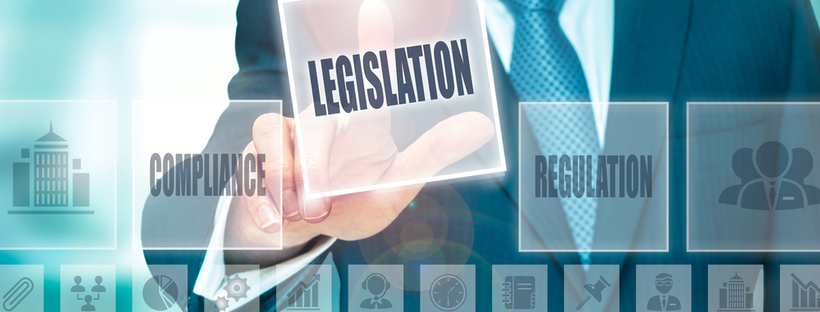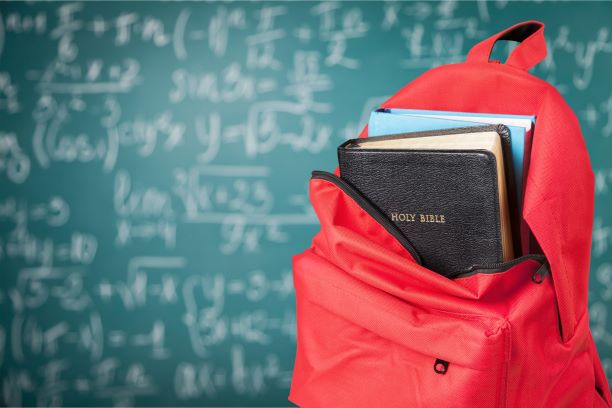Proposed Florida Legislation Sets Out to Curb COVID Litigation and Frivolous Claims, Protect Businesses
Proposed Florida Legislation Sets Out to Curb COVID Litigation and Frivolous Claims, Protect Businesses
On January 6th, lawmakers in the Florida House of Representatives and Senate introduced identical bills (HB 7 and SB 72) aimed at protecting businesses from frivolous litigation related to the COVID-19 pandemic. According to HB 7, the Florida legislature intends to afford “certain business entities, educational institutions, governmental entities, and religious institutions . . . heightened legal protections against liability as a result of the COVID-19 pandemic.” Noticeably absent from the bills is protection for healthcare providers, assisted living facilities, long-term care facilities, and pharmacies. Florida lawmakers are expected to introduce separate legislation intended at protecting healthcare care providers and facilities.
Other states including Alabama, Arkansas, Georgia, Idaho, Kansas, Louisiana, Nevada, Michigan, Mississippi, Nevada, North Carolina, Ohio, Oklahoma, Utah and Wyoming have recently enacted laws that provide some protection to businesses for COVID-19 claims by employees and customers. Like those, Florida’s proposed legislation does not provide a complete bar or immunity from such claims. Instead, the proposed legislation establishes a framework for the defense of these claims and possible early dismissal, which means Florida businesses will still have to defend frivolous COVID-19-related claims.
Instead of outright immunity, the legislation proposes establishing a novel bifurcated approach to dealing with COVID-19 lawsuits. Under the proposed legislation, the first step requires a plaintiff to plead the complaint with particularity instead of the short and plain statement typically in practice. This means that the plaintiff must detail the “who, what, when and why” of the bases of the claim that the defendant’s actions or omissions caused the plaintiff to contract COVID-19 and suffer injuries. To meet the standard at this stage, the complaint must be accompanied by a physician affidavit confirming the physician’s belief that to a “reasonable degree of medical certainty” the plaintiff’s COVID-19 related injury was caused by the defendant’s actions or omissions. The trial court is initially tasked with deciding, as a matter of law, whether the plaintiff’s complaint sufficiently states a claim that is supported by a physician affidavit. If the trial court determines that the complaint, as a matter of law, does not meet this standard, the trial court must dismiss the complaint without prejudice.
If the complaint survives the pleading stage of the bifurcated process, the trial court must conduct an initial hearing to determine the sufficiency of the plaintiff’s complaint and evidence showing that the defendant did not make a good faith effort to comply with applicable governmental guidance related to the spread and prevention of COVID-19. At this stage, the legislation limits the evidence presented to establishing whether the defendants made a good faith effort to comply with the existing guidelines at the time of the plaintiff’s exposure. Absent from the proposed legislation is a mechanism for defendants to challenge the plaintiff’s physician affidavit with competing evidence demonstrating that the plaintiff cannot show to a reasonable degree of medical certainty that he or she was exposed to and contracted COVID-19 as a result of the defendant’s actions or inaction.
Even though designed to curb litigation and frivolous claims, as proposed, this stage of the litigation will likely devolve into an expensive mini-trial. The first evidentiary battle will be establishing what guidance was even in effect at the time of the plaintiff’s alleged exposure, which will not be an easy task given that, especially in the early days of the pandemic, governmental and agency COVID-19 guidance was a moving target, was often contradictory and varied by industry sector. The next evidentiary battle will involve the plaintiff meeting his or her burden to demonstrate that the defendant failed to utilize good faith efforts to comply with that ever-changing governmental guidance. Importantly, however, the legislation provides immunity to the defendant if the trial court determines that the plaintiff fails to meet his or her burden of demonstrating that the defendant failed to make a good faith effort to comply with then-existing guidance.
If the plaintiff carries the day at this initial trial court hearing, the case then proceeds to the next stage – trial. To prevail at the trial stage, the proposed legislation raises the plaintiff’s burden in two important ways. First, the proposed legislation requires the plaintiff to prove that the defendant was at a minimum grossly negligent – simply proving that the defendant was ordinarily negligent will not meet the plaintiff’s burden. Second, the proposed legislation raises the plaintiff’s evidentiary burden from the standard “preponderance of the evidence” to the more rigorous standard of “clear and convincing evidence.”
Another important protection in the proposed legislation is the shortened statute of limitations to one year. Under the proposed legislation, the statute of limitations clock starts ticking when the plaintiff’s injuries arose. If the plaintiff was exposed and suffered injuries prior to the adoption of the legislation, the statute begins to run on the effective date. If the plaintiff is exposed and suffers injury after the effective date, the statute begins to run on the date the plaintiff’s “cause of action accrues.” See SB 72 at (c)(4). However, the proposed legislation is silent if the “cause of action accrues” is triggered by the date of exposure, the date of a positive COVID-19 test, or the date of the onset of symptoms or injuries– which will likely be important in cases filed close to the expiration of the statute of limitations and will likely be another matter that is hotly litigated until settled by the Courts.
The proposed legislation applies retroactively to all COVID-19-related civil actions that are filed after the effective date of the legislation regardless if the cause of action (i.e., the Plaintiff’s exposure to COVID-19 and related injuries) occurred before the enactment date. However, the legislation does not apply to COVID-19 related litigation that was filed before the effective date of the legislation. Thus, while intended to curb the filing of COVID-19 related litigation, there may actually be a run to the courthouse to file cases before the adoption of the proposed legislation to prevent plaintiffs from being subject to the more rigorous framework and heightened evidentiary standard.
The House Civil Justice & Property Rights Subcommittee is scheduled to begin review of HB 7 on January 13th and the Florida Legislative Session begins on March 2nd.










